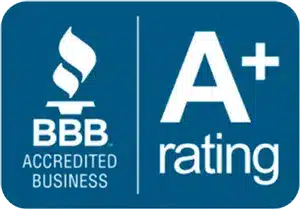Do you know that the Human Immunodeficiency Virus (HIV) damages the CD4 cells in the immune system? It weakens the ability to fight infections and diseases and can severely damage your body’s immune system causing Acquired Immune Deficiency Syndrome (AIDS) if left untreated. At Equality Health, we provide HIV treatment in Edmond, OK that involves antiretroviral therapy (ART), which consists of taking medicine daily as our healthcare professionals prescribe. We recommend treatment ART for everyone who has HIV; even though it can not cure HIV, it can enable you to live a longer and healthier life.

Fundamentals of HIV Treatment in Edmond, OK
Our HIV treatment options involve viral suppression and immune system preservation. Viral suppression reduces the amount of HIV in the body to undetectable levels. In contrast, immune system preservation helps by maintaining a strong immune response to fight infections and diseases. By achieving these goals of HIV treatment, we deduct the possibility of spreading the virus to others while helping preserve your immune system, letting you live a healthier lifestyle.
After testing for HIV, if the result is positive, there are two ways we can approach HIV treatment. Treatment at Equality Health involves the following:-
Antiretroviral Therapy (ART)
For antiretroviral therapy (ART), we use HIV medicines to minimize your viral load to an undetectable level. It stops viral reproduction, lessens the level of HIV in the blood, halts the spread of the illness, and is effective at managing HIV, boosting immune system health, and halting the progression of AIDS-related complications.
ART typically uses several antiretroviral medications from various classes. This helps to increase effectiveness by stopping HIV in several different points of its life-cycle.
Typically, our combination regimen consists of two to three or more antiretroviral medications from at least two classes: entry inhibitors, integrase strand transfer inhibitors, protease inhibitors, nucleoside reverse transcriptase inhibitors (NRTIs), and non-nucleoside reverse transcriptase inhibitors (NNRTIs).
How We Start the HIV Treatment in Edmond, OK
Before starting the treatment, we consider the viral load and CD4 cell count. The viral load and CD4 cell count each reflect different aspects of the immune system and the presence of HIV in the blood. The treatment options for HIV
If you go with early treatment, it’ll benefit you in many ways, such as:
- It protects the CD4 cells from HIV damage, maintaining a healthier immune system.
- Significantly reduces the chance of opportunistic infections and AIDS-related complications.
- Early treatment lowers the possibility of sharing the virus with sexual partners.
- Starting a treatment program early results in better overall health, lower mortality rates, and higher quality of life.
Some of the common questions or hesitations that normally occur while starting our treatment process are:
- Potential side effects
- The burden of taking daily medication
- Difficulties with adherence
- Fear of stigma
Remember that contemporary antiretroviral medications generally have better tolerance and fewer side effects than earlier drugs.
Application of Antiretroviral Medications
There are several different classes of medications used in the treatment of HIV:
- Nucleoside Reverse Transcriptase Inhibitors (NRTIs): NRTIs block reverse transcriptase, an enzyme of HIV, which prevents replication.
- Non-nucleoside Reverse Transcriptase Inhibitors (NNRTIs): NNRTIs bind firmly to the enzyme, blocking it and preventing replication.
- Protease Inhibitors (PIs): PIs block protease, an enzyme of HIV, preventing HIV from maturing and infecting other cells.
- Integrase Inhibitors (INSTIs): INSTIs block integrase, an enzyme of HIV, from integrating HIV DNA into the host’s DNA, which prevents replication.
- Entry Inhibitors: These block HIV from entering a CD4 cell.
Keeping Track of the HIV Treatment Process
Our medical professionals monitor the patient’s response to therapy, assess viral suppression levels, and spot any potential alterations or complications. If the viral load is still detectable, it aids in making treatment decisions, such as changing medications or addressing treatment adherence problems.
Our AIDS HIV treatment in Edmond, OK monitoring looks like this:
- Regular Monitoring: To offer insightful data on the immune system’s functioning, the rate of viral replication, and general health.
- Maintaining Viral Suppression: To preserve immune function, improve general health outcomes, and decrease the risk of opportunistic infections and AIDS-related complications.
- Assessing Treatment Efficacy: Monitor CD4 cell counts, viral loads, and other laboratory markers at various intervals to gauge treatment effectiveness.
Adherence to HIV Treatment Procedures
The HIV treatment effectiveness is dependent on your medication compliance, which is crucial. Tips and techniques we suggest to our patients for retaining adherence
- Establish a Routine: Include medication in your daily routine and make it a habit.
- Set Medication Reminders: Get reminders for your medication doses, set alarms, use pill organizers, or download smartphone apps.
- Seek Support from Others: Explain the value of staying on treatment to your trusted people and ask them to help with reminders or other forms of support.
- Interact with Healthcare Professionals: Discuss any adherence issues you may have with your healthcare providers to get advice and support.
- Utilize technology: Use smartphone applications and adherence tools specially made to manage medication schedules and serve as reminders.
- Stay Organized: Track your medication supplies, promptly refill your prescriptions, and make plans before travel.
At Equality Health (Equality Health), we provide adherence programs that offer information, guidance, and support based on the needs of the individual. To address emotional or psychological barriers that might affect adherence, we provide referrals to counseling or therapy services specializing in HIV care. Join our local support groups for HIV-positive people to share experiences, swap advice, and get encouragement.
Get in touch with our healthcare professionals, who can offer individualized assistance, information, and resources for problems with adherence. Contact Equality Health to get PrEP for HIV medication in Edmond.
Addressing Different Side Effects of HIV Treatment
You can experience many side effects of HIV medications differently. Some side effects include
- Headaches
- Rash
- Fatigue
- Gastrointestinal problems like Nausea & Diarrhea
Some severe side effects, like liver or kidney dysfunction or unusual fatigue, may point to serious complications. In such cases, we provide prompt care and may need to alter the treatment plan.
We use various techniques to manage side effects that involve altering the medication dosage or regimen, treating particular symptoms with additional medications (such as antiemetics for nausea), ensuring adequate hydration, or suggesting lifestyle changes like dietary adjustments and exercise.
We also offer supportive care and counseling if we address any psychological or emotional aspects of side effects. If the side effects worsen or affect your daily life, we advise you to consult with one of our medical professionals immediately.
For us, effective and honest communication is extremely important while treating HIV. So, you must inform us about all kinds of side effects you are facing, major or minor. That way, it’ll be helpful to us to move forward with your treatment and make follow-up appointments.
Remember, sharing your concerns, inquiries, and experiences lets us personalize the treatment based on your overall status with HIV. Schedule an appointment with us today.
HIV Treatment as Prevention
There is a saying you may have heard: “Undetectable = Untransmittable” (U=U). There has been a lot of scientific research on this, which means the risk of HIV transmission to a person’s sexual partners is zero when they maintain an undetectable viral load through effective antiretroviral therapy (ART). In other words, an HIV-positive person with an undetectable viral load cannot sexually transmit the virus.
If you or your partner tests HIV negative, you can prevent future infections by going for PrEP for HIV prevention in Edmond, OK.
We recommend our patients get regular HIV testing for early detection, prompt treatment initiation, and also treatment adherence. Early intervention lowers the risk of transmission by accelerating viral suppression. Additionally, routine testing guarantees ongoing surveillance of viral load levels and enables prompt modifications to the treatment plan as needed.
Future Directions: Advancements in HIV Treatment
The field of HIV care is constantly changing due to new developments and trends in HIV treatment research. That’s why we always strive to stay in the know about the new information that comes out regarding new HIV treatments in Edmond.
While finding a cure for HIV is still difficult, there is a lot of research being done, including gene therapy, immunotherapy, and therapeutic vaccines. These cutting-edge methods seek to get rid of or control the virus in the body without requiring antiretroviral treatment for the rest of one’s life.
There are many treatment options for HIV. Long-acting drug development and searching for an HIV cure in Edmond are two recent trends in HIV treatment research. As a comprehensive HIV treatment provider in Edmond, we stay informed about these developments to implement new treatment options. We give our 100% support to ongoing efforts for more effective HIV management strategies. Contact Equality Health to get PrEP for HIV in Edmond.
Similarly, our medical professionals stay up-to-date on current developments which enables us to participate in clinical trials and make HIV treatment in Edmond more accessible.
Equality Health also provides STD testing, STD Treatment, Hep C Testing, Hep C Treatment, and many more disease treatment and testing services and therapeutic procedures for HIV in Edmond. Schedule an appointment with us today.
Frequently Asked Questions (FAQs)
Due to the high cost of the majority of ART (antiretroviral therapy) drugs, the treatment is a bit costly. If you have insurance, HIV treatment is typically covered. For those who are uninsured, there are patient assistance programs we may use.
Since HIV is a chronic illness, the majority of insurance companies do offer coverage for its treatment. At Equality Health, we assist individuals in obtaining insurance coverage for HIV treatment. Additionally, we subsidize uninsured patients’ insurance costs through our partnerships. After that, the patient can utilize their insurance to cover doctor visits and prescription drugs.
HIV treatment is lifelong. While HIV is a chronic condition that cannot be cured, treatment helps to manage the virus and maintains a healthy immune system. The treatment involves antiretroviral therapy (ART), which lowers the virus count to undetectable levels in the body. The key to managing HIV is maintaining a strict adherence to medications. Stopping treatment or skipping doses can cause the viral load to increase and potentially damage your immune system.
No, HIV cannot be cured with treatment. However, you can manage your HIV symptoms with proper treatment. The treatment involves antiretroviral therapy (ART), which lowers the HIV count if you take it consistently as prescribed. Once the HIV count in your blood gets to and stays undetectable, that means you have the virus under control. However, it’s crucial to keep in mind that HIV treatment does not stop the spread of other sexually transmitted infections.
It is important to get HIV treatment as soon as you get a positive diagnosis on your HIV test. Treatment should start as soon as possible, especially for those with specific situations like pregnancy, diseases that define AIDS, and early HIV infection. Regardless of what stage of HIV you have, you must get HIV treatment because it helps lower your viral load and maintain a healthy immune system. Moreover, it helps prevent the development of AIDS (Acquired Immunodeficiency Syndrome) and also the transmission of the virus to others.
Once diagnosed, you must get HIV treatment. However, despite an early diagnosis, HIV cannot be cured. You can however, mitigate the extent of HIV with treatment procedures as soon as you get a positive result.


